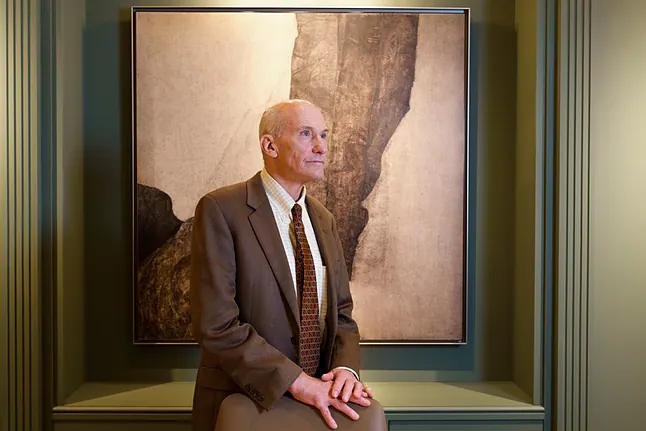A new type of CAR-T cells has achieved in a phase 1 clinical trial to improve the response in patients with B-cell lymphoma who had unsuccessfully received the currently approved anti-CD19 CAR-T therapy. The novelty of this new generation of CAR-T cells is that the T lymphocytes express, in addition to the chimeric antigen receptor (CAR) that directs them specifically to the tumor cell, a gene that secretes interleukin 18 (IL-18), a proinflammatory cytokine that further strengthens the immune system to fight cancer.
In the trial, whose results are now published in The New England Journal of Medicine, the version of CAR-T being developed was tested in 21 lymphoma patients who had received multiple treatments, including the approved and clinically used anti-CD19 CAR-T cells (administered to 20 patients).
While CAR-T anti-CD19 therapy represents a therapeutic opportunity for lymphoma patients, in more than half of the cases, according to these researchers, the treatment does not achieve long-term remission. The relapses of these patients pose a therapeutic challenge today.
The new CAR-T cells in this trial reduced cancer in 81% of the patients and achieved complete remission in 52%; some of the first treated patients experienced a lasting remission of at least two years.
The side effects were as expected and well-known in this type of treatment, such as cytokine release syndrome and neurotoxicity, and were successfully managed in the usual manner.
Named armed CAR-T or huCART19-IL18 cells, this new generation is a development of the group led by Carl June, the Richard W. Vague Professor in Immunotherapy at the Perelman School of Medicine at the University of Pennsylvania.
June is considered the father of the innovative CAR-T therapy, which has revolutionized the treatment of hematologic cancer; his team is actively working to optimize the treatment and expand it to new indications, such as solid tumors (specifically brain cancer) and immunological diseases. As he mentioned in a recent interview with this publication, "the sky is the limit for CAR-T therapies".
Regarding the armed CAR-T cells, June revealed some preliminary results in statements made in 2024: "Unlike current CAR-T cells, this CAR secretes the IL-18 protein, which enhances the growth of CAR-T cells. We have observed a high response rate in patients with relapsed or refractory lymphoma to commercially available CD19 CAR-T cells," he pointed out.
Potential strategy for solid tumors
Regarding the study just published in The New England, he notes that "based on the results, we believe that incorporating cytokine secretion into CAR-T cell design will have broad implications for improving cellular therapies, even beyond blood cancers." He adds that "with increased persistence and expansion of T cells, this strategy could be powerful in settings where CAR-T has not performed as well, such as solid tumors."
In addition to the possibility of providing more treatments for seriously ill patients, the study authors highlight the additional advantage that the production of huCART19-IL18 is based on a process developed by the Center for Cellular Immunotherapies at the University of Pennsylvania, which shortens the CAR-T cell manufacturing time to three days.
Shortens manufacturing time
This represents a significant reduction in the manufacturing period, which typically ranges from ten to fourteen days, and on which they are also working intensively. "The study suggests that along with IL-18 secretion, a reduction in manufacturing time can also influence T cell potency.
The group led by Professor Ignacio Melero at the University of Navarra, a researcher at CIMA and co-director of the Department of Immunology and Immunotherapy at the Clínica Universidad de Navarra, has conducted experimental research investigating precisely that reinforcement mechanism provided by IL-18.
As Melero explains to SMC Spain, "armed CAR cells have greater therapeutic potency. This concept has been tested preclinically and clinically with other cytokines, but with more modest clinical results. Our group published in preclinical models the mechanisms by which we observed that adoptive cellular therapy armed with interleukin-18 is more potent through the self-stimulation of lymphocytes, allowing them to migrate better to the tumor tissue and adapt to the metabolic stress present there."
June's team already plans to use armed CAR-T cells in other trials, for patients with acute lymphocytic leukemia (ALL) and chronic lymphocytic leukemia (CLL). They also aim to use a similar product in a new trial for patients with non-Hodgkin lymphoma.
On the other hand, the Head of Immunology at the Hospital Clínic de Barcelona, Manel Juan, whose group made possible the first non-commercial CAR-T developed entirely in Europe, values June's study for its "excellent quality" and for proposing "a new structure that, beyond allowing the recovery of therapeutic options for patients who relapse after an initial CAR-T configuration, suggests that these initial CAR-T cells can be rescued if combined with a cytokine."
The study suggests but does not prove, as the immunologist explains to SMC, that the double structure (CAR+IL18) could be more effective than approved CAR-T therapy, although "at the moment it demonstrates that it could be a subsequent proposal when the first one fails".
